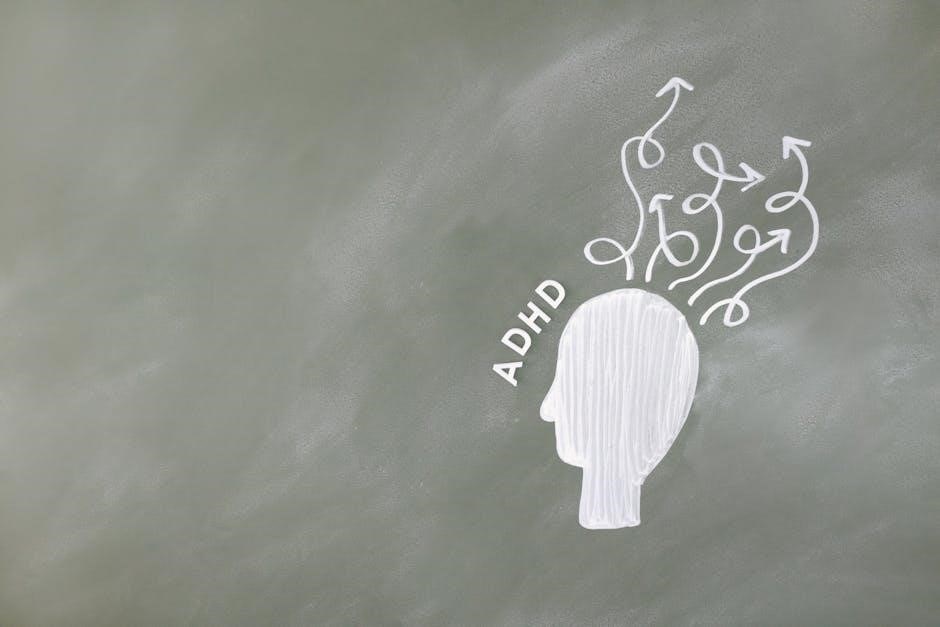The 15th edition of Comprehensive Stress Management by Jerrold Greenberg offers a detailed guide to understanding and managing stress. Available as a PDF‚ it provides practical techniques‚ research insights‚ and real-life applications to help individuals assess and reduce stress effectively. This edition integrates updated theories and tools‚ making it a valuable resource for learners seeking holistic stress management strategies.
Overview of the 15th Edition
The 15th edition of Comprehensive Stress Management by Jerrold Greenberg provides an updated‚ holistic approach to understanding stress. Available as a PDF‚ it integrates the latest research and practical tools for managing stress in various contexts. This edition includes 17 chapters‚ covering topics such as stress definitions‚ physiological effects‚ and cognitive-behavioral techniques. It also incorporates digital resources like McGraw-Hill Connect‚ enhancing learning and application. Designed for students and professionals‚ this edition retains its core strengths while offering fresh insights and updated content to address contemporary stress challenges effectively.
Importance of Stress Management in Modern Life
Effective stress management is crucial in today’s fast-paced world‚ where individuals face numerous challenges that can impact their health and well-being. Chronic stress can lead to physical and mental health issues‚ such as anxiety‚ hypertension‚ and weakened immune systems. By mastering stress management techniques‚ individuals can enhance their resilience‚ improve relationships‚ and achieve personal and professional goals. The 15th edition of Comprehensive Stress Management emphasizes the importance of addressing stress proactively‚ offering practical strategies to navigate modern life’s demands successfully and maintain overall quality of life.

Understanding Stress
Stress is a natural response to internal or external pressures‚ impacting physical‚ emotional‚ and mental well-being. The 15th edition explores its definition‚ types‚ and effects‚ providing a foundation for effective management strategies.
Definition and Types of Stress
Stress is a multifaceted experience triggered by internal or external pressures. It manifests as acute‚ episodic acute‚ or chronic stress. Acute stress is short-term‚ while chronic stress persists‚ leading to severe health issues. Episodic acute stress occurs frequently due to a chaotic lifestyle. Additionally‚ stress can be categorized as eustress (positive) or distress (negative). Other types include psychological‚ physiological‚ and environmental stress. Understanding these distinctions is crucial for developing targeted coping strategies.
The Fight-or-Flight Response
The fight-or-flight response is the body’s automatic reaction to stress‚ triggering hormonal releases like adrenaline. This mechanism prepares the body to either confront or escape danger by increasing heart rate‚ blood pressure‚ and energy levels. It diverts blood flow to muscles and the brain‚ sharpening focus and reflexes. While this response is vital for survival‚ chronic activation due to modern stressors can lead to health issues. Understanding this biological process is key to managing stress effectively and maintaining overall well-being. It highlights the body’s innate ability to respond to threats‚ but also the need for balance.
Physiological Effects of Stress
Stress triggers a cascade of physiological changes‚ impacting multiple body systems. The nervous system activates‚ releasing hormones like cortisol and adrenaline. This leads to increased heart rate‚ rapid breathing‚ and heightened alertness. Prolonged stress can weaken the immune system‚ disrupt digestion‚ and affect reproductive health. Chronic stress may cause hypertension‚ cardiovascular issues‚ and metabolic problems. Additionally‚ it can lead to fatigue‚ muscle tension‚ and headaches. Understanding these physiological effects is crucial for implementing effective stress management strategies to protect long-term health and well-being.

Assessing Stress Levels
Assessing stress levels involves identifying physical‚ emotional‚ and behavioral indicators. Self-assessment tools‚ like questionnaires‚ help evaluate stress intensity and its impact on daily functioning and well-being effectively.
Methods for Evaluating Personal Stress
Evaluating personal stress involves using standardized tools like the Perceived Stress Scale (PSS) and the Stress Assessment Questionnaire. These methods help identify stress levels and sources. Physical indicators‚ such as increased heart rate or sleep disturbances‚ provide insights. Emotional symptoms like anxiety or irritability are also assessed. Behavioral changes‚ such as altered eating habits or social withdrawal‚ are documented. Combining self-reported data with physiological markers offers a holistic view. Regular assessments enable individuals to track stress patterns and implement targeted interventions for better management and improved well-being over time.
Identifying Stressors in Daily Life
Identifying stressors involves recognizing situations‚ environments‚ or individuals that trigger stress. Common stressors include work pressures‚ financial difficulties‚ relationship conflicts‚ and health concerns. Daily tasks like time management and balancing responsibilities can also act as stressors. Environmental factors‚ such as noise or overcrowding‚ may contribute. Personal habits‚ like poor time management or lack of boundaries‚ can exacerbate stress. By pinpointing specific stressors‚ individuals can address root causes and develop tailored strategies to mitigate their impact and improve overall well-being. Awareness is the first step toward effective stress management and a healthier lifestyle.

Effective Stress Management Techniques
Effective techniques include mindfulness‚ deep breathing‚ and exercise‚ empowering individuals to reduce stress and enhance emotional resilience through practical‚ actionable strategies.
Relaxation Techniques for Reducing Stress
Relaxation techniques‚ such as deep breathing‚ progressive muscle relaxation‚ and visualization‚ help calm the mind and body. These methods reduce stress hormones like cortisol and promote a relaxation response. Deep breathing slows heart rate and lowers blood pressure‚ while visualization distracts from stressful thoughts. Regular practice enhances emotional resilience and improves overall well-being‚ making these techniques essential for managing chronic stress effectively.
Exercise and Physical Activity as Stress Relievers
Exercise and physical activity are powerful tools for reducing stress. Aerobic exercises like walking and cycling boost endorphins‚ improving mood and reducing tension. Strength training enhances physical resilience‚ while yoga combines movement with mindfulness to calm the mind. Regular activity distracts from stressors‚ improves sleep‚ and increases energy levels. Even short workouts can provide immediate stress relief. Consistency is key‚ as physical activity helps build long-term emotional and mental resilience against stress. Incorporating exercise into daily routines is a proactive approach to managing stress effectively.
Time Management Strategies
Effective time management is essential for reducing stress and improving productivity. Prioritizing tasks using techniques like the Eisenhower Matrix helps focus on what’s truly important. Setting realistic goals and breaking them into smaller‚ manageable steps prevents overwhelm. Allocating specific time blocks for tasks reduces multitasking and boosts efficiency. Learning to delegate and avoid overcommitting ensures a balanced workload. Using calendars‚ to-do lists‚ and digital tools enhances organization. Regularly reviewing and adjusting schedules helps maintain control and flexibility‚ leading to a more stress-free and accomplished lifestyle.

Cognitive and Behavioral Approaches
Cognitive and behavioral techniques help individuals identify and modify negative thought patterns‚ fostering healthier responses to stress. Practical strategies include cognitive restructuring and behavioral activation to enhance emotional resilience.
Cognitive-Behavioral Therapy (CBT) for Stress
Cognitive-Behavioral Therapy (CBT) is a highly effective approach for managing stress by addressing negative thought patterns and behaviors. It focuses on identifying and challenging unhelpful cognitive distortions‚ such as catastrophizing or overgeneralizing‚ and replacing them with more balanced perspectives. Behavioral techniques‚ like exposure to stressful situations or mindfulness exercises‚ are also incorporated to build resilience. By restructuring thoughts and actions‚ individuals can better cope with stressors and develop adaptive coping strategies. CBT’s structured‚ goal-oriented nature makes it a practical tool for long-term stress management and emotional well-being.
Mindfulness-Based Stress Reduction (MBSR)
Mindfulness-Based Stress Reduction (MBSR) is a powerful approach to managing stress by cultivating present-moment awareness. Developed by Jon Kabat-Zinn‚ MBSR combines meditation‚ deep breathing‚ and body scan techniques to help individuals observe thoughts and emotions without judgment. Regular practice enhances self-awareness‚ reducing reactivity to stressors. By focusing on the present‚ MBSR decreases anxiety about the future or regrets about the past. This non-judgmental acceptance fosters emotional resilience‚ enabling individuals to respond to challenges more calmly and effectively‚ promoting overall well-being and stress reduction in daily life.

The Role of Lifestyle in Stress Management
Lifestyle plays an essential role in stress management by promoting balance‚ overall well-being‚ and providing practical strategies to cope with daily challenges effectively through positive habits and mindful choices.
Nutrition and Diet for Stress Reduction
A well-balanced diet is crucial for managing stress‚ as it directly impacts mental and physical health. Foods rich in whole grains‚ fruits‚ vegetables‚ lean proteins‚ and omega-3 fatty acids help stabilize mood and reduce inflammation. Incorporating antioxidant-rich foods‚ such as berries and leafy greens‚ supports brain health and resilience to stress. Staying hydrated and limiting stimulants like caffeine and sugar can prevent energy crashes and irritability. Regular‚ nutrient-dense meals help maintain steady blood sugar levels‚ reducing emotional highs and lows. A mindful approach to nutrition fosters a stronger foundation for overall well-being and stress resilience.
Sleep and Recovery as Stress Management Tools
Sufficient sleep and recovery are essential for managing stress effectively. During sleep‚ the body repairs itself‚ and the brain processes emotions‚ reducing stress hormones like cortisol. Aim for 7-9 hours of quality sleep per night to enhance resilience. Prioritize a consistent sleep schedule‚ a relaxing bedtime routine‚ and a calming environment to improve sleep quality. Incorporating activities like meditation or deep breathing before bed can further promote relaxation. Adequate rest helps regulate mood‚ improves focus‚ and strengthens the immune system‚ making it easier to cope with daily stressors and maintain emotional balance.
Building a Supportive Social Network
A supportive social network plays a crucial role in stress management by providing emotional support‚ practical assistance‚ and a sense of belonging. Surrounding yourself with understanding family‚ friends‚ and colleagues can help alleviate stress by sharing responsibilities and offering fresh perspectives. Engaging in community activities or joining support groups can further strengthen social connections. A strong network fosters resilience‚ reduces feelings of isolation‚ and enhances overall well-being. Nurturing these relationships through active listening‚ empathy‚ and mutual respect is key to building a reliable support system for managing stress effectively.

Addressing Emotional and Psychological Factors
Emotional and psychological factors significantly influence stress levels. Understanding personal triggers and developing healthy coping mechanisms are essential for long-term stress management and mental well-being.
Self-Awareness and Emotional Intelligence
Self-awareness and emotional intelligence are crucial for effective stress management. Recognizing personal emotions‚ strengths‚ and weaknesses helps individuals identify stress triggers and respond appropriately. Developing emotional intelligence enhances empathy‚ communication‚ and problem-solving skills‚ which are vital for navigating stressful situations. By understanding their emotional patterns‚ individuals can adopt healthier coping strategies‚ improving resilience and overall well-being. Self-awareness also fosters accountability‚ enabling people to take charge of their emotional and psychological health proactively.
Emotional Regulation Techniques
Emotional regulation techniques are essential for managing stress effectively. These methods help individuals control and modulate their emotional responses to stressful situations. Techniques such as deep breathing‚ progressive muscle relaxation‚ and mindfulness meditation can reduce emotional intensity and promote calmness. Additionally‚ journaling‚ grounding exercises‚ and cognitive reappraisal are effective strategies to manage emotions. By practicing these techniques‚ individuals can better navigate stressors‚ prevent emotional overload‚ and maintain emotional balance. Regular use of these tools fosters resilience and enhances overall mental well-being in the face of challenges.
Reframing Perspectives on Stressful Situations
Reframing perspectives on stressful situations involves changing how we interpret and respond to challenges. This cognitive technique helps individuals view stressors as opportunities for growth rather than threats. By shifting focus from problems to solutions‚ people can reduce emotional reactivity. Practices like cognitive restructuring and the “orbit model” encourage identifying and challenging negative thoughts. Reframing fosters resilience by promoting a more balanced and constructive outlook. Regular practice enhances problem-solving skills and reduces anxiety‚ enabling individuals to approach stressful situations with greater confidence and clarity. It empowers them to manage stress more effectively in both personal and professional contexts.
Workplace Stress Management
Workplace stress management addresses organizational factors affecting employee well-being. It involves creating a supportive environment‚ improving communication‚ and providing resources to enhance productivity and job satisfaction.
Common Sources of Workplace Stress
Common sources of workplace stress include excessive workload‚ lack of control over tasks‚ poor communication‚ and unclear expectations. Additionally‚ unsupportive management‚ workplace conflicts‚ and fear of job insecurity contribute significantly. Long hours‚ work-life imbalance‚ and repetitive or monotonous tasks also play a role. Environmental factors‚ such as noise or ergonomic issues‚ can exacerbate stress. Finally‚ organizational change‚ layoffs‚ or rapid technological advancements often create anxiety among employees. These factors collectively impact mental and physical health‚ reducing productivity and job satisfaction.
Strategies for Managing Job-Related Stress
Effective strategies for managing job-related stress include setting clear boundaries‚ prioritizing tasks‚ and seeking support from colleagues or mentors. Time management techniques‚ such as the Eisenhower Matrix‚ can help reduce overwhelm. Engaging in mindfulness practices‚ like deep breathing or meditation‚ can alleviate tension. Regular physical activity and taking short breaks throughout the day also contribute to stress reduction; Additionally‚ open communication with management and focusing on achievable goals can enhance a sense of control and satisfaction. Implementing these strategies fosters resilience and improves overall well-being in the workplace.

Coping with Specific Stressors
Coping with specific stressors involves addressing the source directly and engaging in adaptive strategies. Examples include financial‚ health‚ or relationship challenges‚ managed through tailored approaches and support systems.
Financial Stress and Money Management
Financial stress arises from economic pressures‚ impacting mental health and relationships. Effective money management involves budgeting‚ prioritizing expenses‚ and building savings. Reducing debt through structured plans can alleviate anxiety. Understanding financial goals helps in creating realistic strategies. Regular financial reviews ensure alignment with changing needs. Seeking professional advice from financial planners can provide tailored solutions. Automating savings and investments promotes consistency. Educating oneself about personal finance empowers better decision-making. Mindful spending habits and emergency funds act as safety nets. Addressing financial stress proactively enhances overall well-being and reduces long-term monetary concerns.
Academic and Student-Related Stress
Academic stress stems from pressures to perform well‚ meet deadlines‚ and balance responsibilities. Students often face anxiety due to exams‚ assignments‚ and uncertain futures. Effective time management and prioritization of tasks can reduce overwhelm. Breaking tasks into smaller‚ manageable steps helps maintain focus. Seeking support from teachers‚ peers‚ or counselors is crucial. Engaging in study groups or tutoring can enhance understanding and confidence. Balancing academic life with hobbies and relaxation techniques‚ like mindfulness‚ fosters mental well-being. Encouraging open conversations about stress helps students feel supported and less isolated during challenging times.

Tools for Long-Term Stress Management
Effective tools include mindfulness apps‚ journaling‚ and goal-setting frameworks. These resources help individuals monitor stress levels‚ develop resilience‚ and maintain a balanced lifestyle over time.
Self-Assessment Tools for Ongoing Stress Management
Self-assessment tools‚ such as stress questionnaires and emotional awareness journals‚ enable individuals to monitor their stress levels and identify patterns. These tools help track physiological‚ emotional‚ and behavioral changes‚ providing insights into personal stress triggers. Regular use of these tools fosters self-awareness and encourages proactive stress reduction strategies. By integrating these assessments into daily routines‚ individuals can better understand their stress responses and develop tailored coping mechanisms. This continuous evaluation is essential for maintaining long-term emotional and mental well-being.
The Importance of Seeking Professional Help
Seeking professional help is crucial when stress becomes overwhelming or interferes with daily life. Mental health experts‚ such as psychologists or counselors‚ provide tailored strategies to manage stress effectively. They can identify underlying issues and offer evidence-based techniques to enhance resilience. Professional guidance is particularly beneficial for chronic stress or when self-help methods are insufficient. It promotes healthier coping mechanisms and fosters emotional well-being. Recognizing when to seek help is a sign of strength‚ leading to improved mental health outcomes and a better quality of life.

Future Trends in Stress Management
Future trends emphasize technology’s role in enhancing stress management through AI‚ VR‚ and wearable devices‚ offering personalized solutions and accessible tools for mental well-being.
Emerging Technologies and Stress Reduction
Emerging technologies‚ such as AI-powered apps and wearable devices‚ are revolutionizing stress reduction by offering personalized interventions. AI analyzes data to tailor relaxation techniques‚ while VR provides immersive calming environments. Wearables monitor physiological signs‚ enabling real-time stress interventions. These tools enhance accessibility‚ making stress management more convenient and effective. They also promote early detection of stress triggers‚ allowing individuals to address issues proactively. While technology advances‚ human-centered approaches remain essential for holistic well-being. These innovations complement traditional methods‚ creating a balanced approach to modern stress management.
The Role of Digital Platforms in Stress Management
Digital platforms have become vital tools for stress management‚ offering accessible resources and personalized approaches. They provide guided relaxation exercises‚ mood-tracking features‚ and evidence-based techniques like CBT. AI-driven apps tailor strategies to individual needs‚ enhancing effectiveness. These platforms also foster community support‚ reducing feelings of isolation; By integrating education and practical skills‚ digital tools empower users to manage stress proactively. Their convenience and adaptability make them indispensable in today’s fast-paced world‚ complementing traditional methods and promoting holistic well-being.



